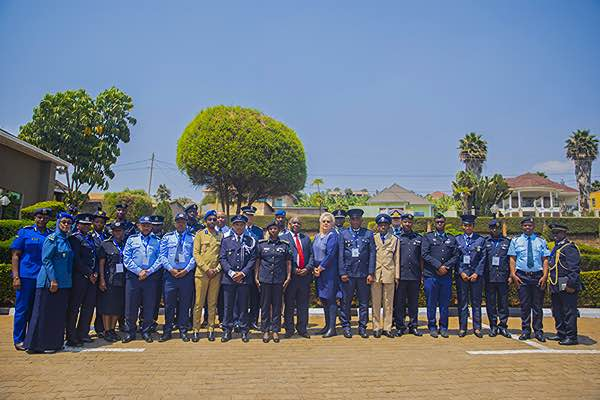
The five-day training workshop for the Eastern Africa Standby Force (EASF) concluded in Kigali, Rwanda with a clear roadmap for the effectiveness in the preparation and management of the pledged Police capabilities.
Twenty-three Police officers from nine out of ten EASF member states were in Kigali since Monday to address challenges in the management of the Police pledged capabilities, which were identified in the report of the panel of independent experts on verification, confirmation and validation of the regional body’s pledged capabilities also known as ‘Gambari Report.’
Particularly, the workshop sensitized representatives of member countries on the roles and responsibilities of the Police component in contemporary peace support operations; and to equip them with knowledge and skills in the verification process.
Commissioner Ali Said Bacar, the EASF Head of Police component, reaffirmed that the objectives of the workshop were achieved.
“The workshop identified and recommended quotas for Police Professional Staff, who constitute the Police command and management elements of the Police components of the peace support operations.
Currently, there are no Police professional staff in the EASF Police pledged capabilities, which is a major gap,” Commissioner Bacar said.
The workshop, he added, discussed and recommended a clear roadmap for the EASF to assess all pledged Individual Police Officers (IPO) and Formed Police Units (FPU) in line with the EASF and AU policy requirements.
It also recommended key considerations at the EASF and at member states level to address the “long-standing challenge” related to contingent owned equipment for the FPUs.
The Deputy Inspector General of Police (DIGP) in charge of Administration and Personnel, Jeanne Chantal Ujeneza, while closing the workshop, said that it was crucial to enhance the efficiency and effectiveness in the preparation and management of the pledged Police capabilities.
This, she said, will ensure their ability to perform complex policing tasks in contemporary peace support operations, and to always be ready for deployment at any appropriate notice.
“This was important to establish and sustain a credible and verified pool of police-pledged experts with the required professional competences and capabilities for the Police roster to serve in the EASF, AU Police strategic support group or the UN led peace support operations,” she said.
The workshop, she added, created a platform for collective reflection on experiences and challenges in safeguarding the EASF, including the importance of involving member states and other actors.
She urged participants to be messengers of the fundamental principles and objectives of the EASF to their respective Police institutions.
“You now have the responsibility to put to use the acquired skills for efficient and effective preparation and management of the pledged Police capabilities.
This will ultimately make it possible for the EASF member states to play a leading role in the regional peace support operations,” DIGP Ujeneza said. (End)
